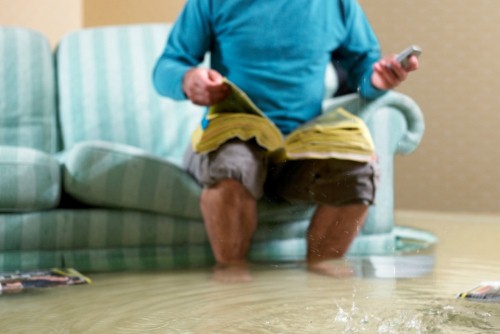Tips For Flood Insurance Policyholders - After The Fact

Late summer and early fall are typically considered to be the peak of "hurricane season." For quite a lot of people, even those located in inland areas away from the brunt of a hurricane's natural aggression, floods are a tangible and serious hazard. Many homeowners insurance policies don't cover flood damage, leading to a preponderance of insurance providers offering separate flood insurance policies.
Those who have such insurance coverage will be far better prepared for dealing with the monetary consequences of the damages resulting from flooding during a hurricane. Even so, there are a number of basic procedures you will want to be sure to observe when going out after the storm to survey the level and severity of damage to your property.
Before going inside your home, check the outside for structural damage, as well as anything affecting the utility lines for water, gas, electric and septic services. Instances of damage to the latter should instantly be reported to the proper companies so they can quickly send someone to address the problem.
Dispose of any damaged items you find, remembering, of course, to keep pieces of them, since any claims adjuster your insurer will send to the property will require evidence of everything you wish to include in your claim, no matter how damaged. This is a fail-safe technique used to prevent instances of insurance fraud.
Contact your insurance agent as soon as possible so the two of your can meet to fill out a flood damage claim. Document any damage you see with photographs or video while filling out an insurance inventory, if you have one, to have comprehensive records of everything that you will be seeking compensation for from your insurance provider.
Any receipts you have saved, particularly for items that had a hefty price tag when you bought them, will come in handy. Attach them if at all possible.
